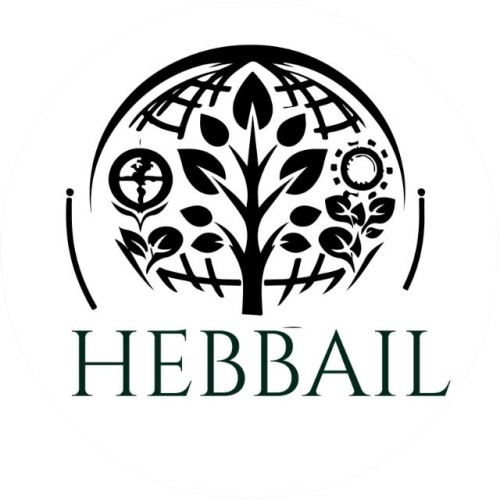
The Truth About A2 Ghee: 90% of Brands Are Just Selling You a Label
Share
A2 Ghee Is Everywhere, But Is It Real?

Walk into any health food store or scroll through wellness Instagram accounts, and you'll see it—A2 Ghee in glossy jars, stamped with gold labels and words like "grass-fed," "farm-fresh," "Ayurvedic." It’s marketed as a superfood, an immunity booster, a metabolism savior. But here’s the uncomfortable truth:
Most of these brands are just selling you a label. Not the legacy. Not the ethics. Not even the right cow.
What Is A2 Ghee, Really?

A2 Ghee is made from the milk of cows that produce the A2 beta-casein protein—a type of milk protein believed to be easier to digest and more compatible with the human body than its A1 counterpart. This milk typically comes from desi (native) Indian breeds like Gir, Sahiwal, Hallikar, or Malnad Gidda.
True A2 Ghee is:
-
Made from native breed cows only.
-
Sourced from cows that are not injected with hormones or fed unnatural diets.
-
Produced in small batches, ideally using the traditional bilona (hand-churned) method.
-
Free from industrial shortcuts like milk pooling or blending with A1 milk.
Now ask yourself: How many brands can genuinely say they follow all these steps?
The Great A2 Label Scam
The moment "A2" became a buzzword, every brand wanted in. But here’s how the illusion is built:
1. Crossbred Cows in Native Names
Many brands feature photos of Gir cows on their packaging but source milk from crossbred Holstein-Jersey cows with trace A2 lineage. The result? A diluted, hybridized milk that may or may not be truly A2.
2. Milk Pooling from Unverified Sources

Companies often collect milk from thousands of farmers across regions without strict segregation protocols. In such cases, A1 and A2 milk are mixed, defeating the entire purpose.
3. Lack of DNA Testing or Breed Traceability
Very few brands DNA-test their herd or maintain direct ownership of native cows. Without proof of genetic lineage, the A2 claim is often just wishful marketing.
4. Industrial Ghee, Spiritual Labels
 Ghee is being produced in mechanized, heat-intensive factories—but wrapped in Ayurvedic, Sanskrit-heavy branding. Ayurveda doesn’t happen in steel tanks and marketing decks. It happens in earthen values.
Ghee is being produced in mechanized, heat-intensive factories—but wrapped in Ayurvedic, Sanskrit-heavy branding. Ayurveda doesn’t happen in steel tanks and marketing decks. It happens in earthen values.
Why Hebbail Doesn’t Play That Game
At Hebbail, we don’t build our product on trends—we build it on truth. Here’s how we stand apart:
1. Malenadu’s Rainfed Native Cows
Our ghee comes from native Malnad Gidda and Hallikar cows raised in the lush, rain-rich regions of Karnataka. These cows graze freely on naturally growing grass, herbs, and forest foliage.
2. Zero Industrial Sourcing
We do not source milk from any third-party aggregators. Every drop comes from cows we know by name, raised on farms that follow zero dry fodder, zero hormone, and zero antibiotic policies.
3. Bilona Method, Not Boiler Ghee
We churn curd—not cream—using the traditional bilona method. It’s slower, costlier, and yields less. But it preserves nutrition, taste, and the sacred value of the ghee.
4. No Amazon, No Aggregator
You won’t find Hebbail on mass e-commerce platforms that force price wars and kill quality. We sell directly through our own website to maintain full control over storage, shipping, and customer trust.
The Impact of Fake A2 on Your Body
Digestive Stress
You buy A2 for its gut-friendliness. But if the ghee is made from mixed or unverified milk, you may end up consuming A1 anyway, triggering inflammation and bloating.
Nutrient Loss
Factory-made ghee, made under high heat or from cream instead of curd, loses vital fat-soluble vitamins like A, D, E, and K.
Misplaced Trust
When brands exploit your trust in Ayurveda or native wisdom, it erodes the entire movement. And the real farmers, cows, and craftspeople suffer.
How to Identify Real A2 Ghee
Here are questions you should ask before buying:
-
Where are the cows raised? (Not just the brand HQ)
-
Are they native Indian breeds, DNA tested?
-
Is the ghee made from curd (bilona) or cream?
-
Do they control the entire supply chain?
-
Do they show real farms, not stock photos?
If a brand can’t answer these clearly—walk away.
Closing: A2 Is Not a Trend. It’s a Responsibility.
Hebbail isn’t here to ride the wellness wave. We’re here to return dignity to the cow, respect to the farmer, and honesty to your plate. A2 Ghee is not a product. It’s a promise—and one we refuse to break for margins or mass reach.
So next time you see a shiny label screaming "A2," look beyond the packaging.
The truth isn’t on the label. It’s in the soil, in the cow, in the hands that churn, and in the values we uphold.
